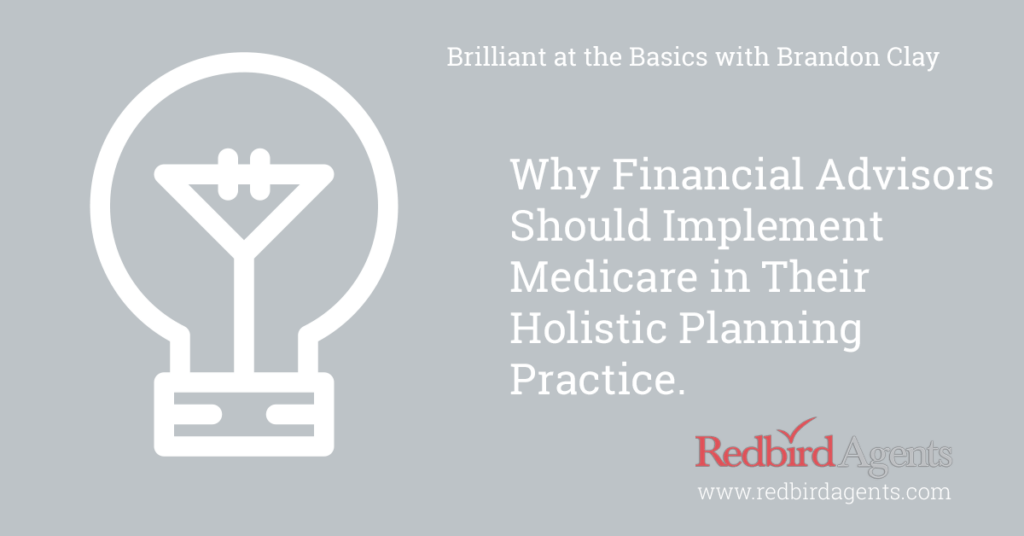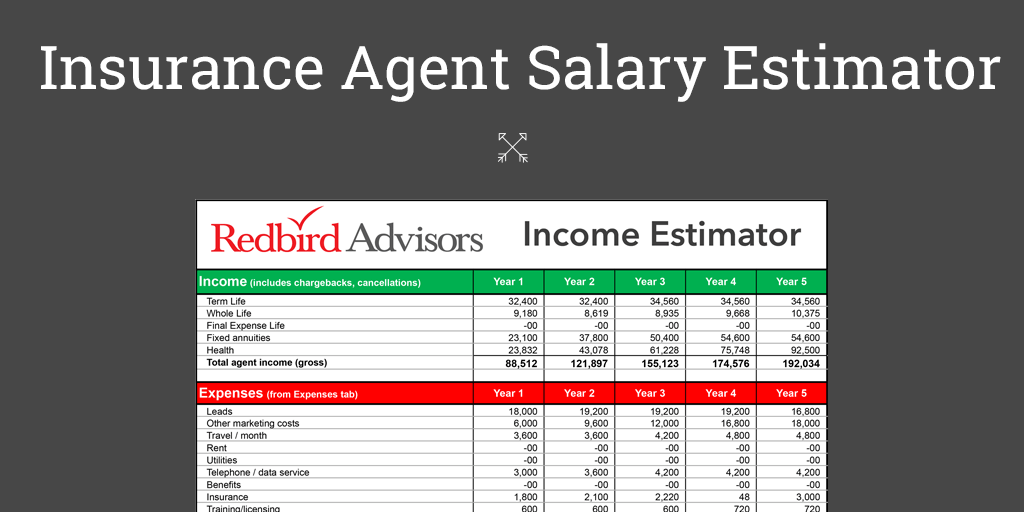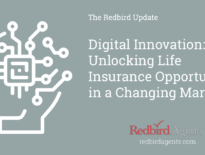
Below is an article from one of our own, Brandon Clay. I thought it made sense to dive a little deeper and add some additional context and commentary to this as the original version was published with our friends over at InsuranceNewsNet.
In my 26 years in the Medicare industry, I have met with thousands of financial advisors to discuss the Medicare opportunity and what I believe is Medicare’s important place in a holistic financial plan.
Some advisors are intrigued with the potential — not only the financial potential but the potential that lies in their ability to differentiate themselves in the market. But, to my dismay, many advisors see only the impact (or lack of it) on them rather than looking at the benefits for the clients.
Why Financial Advisors Don’t Sell Medicare
- Medicare is a distraction to my core financial planning business.
- The earning potential is too low.
- The workload is too much to balance.
I empathize with those concerns. I have experienced each one of them at different times in my career. I know those concerns often provided easy ways for me to rationalize that the juice wasn’t worth the squeeze.
But I want to challenge your thinking about whether Medicare should be in your bag. I believe there are many reasons your clients should have someone who already knows their life goals help them through one of the most complicated decisions they will ever make.
Drew’s Commentary:
Recognize the trust factor: Understand that clients trust their financial advisor and would value their guidance in Medicare decisions. Position yourself as a trusted resource in this complex area whether you’re writing the policy yourself or working with a trusted referral partner.
Address client knowledge gaps: Clients often struggle to understand healthcare and Medicare. Take the time to educate them on the basics and empower them to make informed decisions.
Alleviate financial concerns: Clients fear outliving their money, and healthcare decisions have a significant impact. Offer support and reassurance, demonstrating how Medicare planning fits into their overall financial goals.
Three top reasons your clients need your help with Medicare.
- Clients don’t want to trust someone new. How many people does an individual really trust? Some of their family members. A friend or two. And a small number of professionals who help them navigate life’s big decisions. Medicare is a big decision. Many studies have shown how much money individuals left on the table when they did not turn to a Medicare expert for advice. In most cases, your clients are on their own to find that expert they can trust. Don’t you think many of your clients would love to have their trusted financial advisor at their side for this decision
- Clients just don’t understand health care. And they don’t want to understand it either. They want to be in a system that looks out for their interests. If you have paid any attention to what happens in the roughly 90-day free for all they call Medicare annual enrollment period and open enrollment period, then you probably know a little bit about how Gen. George Armstrong Custer felt at the Little Big Horn. There aren’t many times in a person’s life when they face as big a decision as choosing their Medicare coverage.
- Clients are petrified they will outlive their money. This is always one of the top two or three concerns of older clients. The thought that this could happen to them influences a broad range of life decisions, health care being an obvious high-impact decision. Clients need someone they can lean on, which takes us back to Reason No. 1.
The Medicare decision process is worth mentioning. Never before have we seen the opportunity for people to be fooled and confused. Digital marketing experts say we see between 4,000 and 10,000 ads each day. That doesn’t include all the social media posts that steal our time. I imagine the average Medicare beneficiary during open enrollment season feels a bit like a javelin catcher at a track meet.
People make decisions based on their values (see Maslow’s hierarchy of needs). Values seldom change over a lifetime. That should be comforting to those of us who work in financial services.
But behaviors — now that’s a different animal. Almost 10,000 ad impressions a day impact decisions. People will make decisions they know are wrong. That’s their values speaking to them, but they do it anyway.
When it comes to Medicare, your clients should not be left on their own to decipher the thousands of Medicare-related messages they see, hear and read.
The solution: It’s not about Medicare; it is about delivering a truly holistic planning experience.
It’s not just about adding Medicare to your practice. It’s about how you can use your holistic financial planning process to help your clients best solve their health care risk. The required logistics will vary based on the solution you choose to provide your clients.
Drew’s Commentary
Embrace a holistic approach: Incorporate Medicare into your practice by delivering a comprehensive planning experience. Show how healthcare risk management can be integrated seamlessly into your existing services.
The solution: It’s not about Medicare; it is about delivering a truly holistic planning experience:
Determine the best approach: Consider different implementation options, such as becoming a Medicare expert, hiring a specialist, or partnering with a third party. Choose the option that aligns best with your clients’ needs and your business goals.
Prioritize exceptional customer experience: Focus on providing a consistently excellent client experience, as it fosters trust, generates referrals, and expands your network of prospects.
Three ways financial advisors can implement Medicare
- Go all-in and embrace Medicare to the fullest. This is the most time-intensive option, requiring health licensing, certifying and annual testing. It’s also the most lucrative from the standpoint of fully owning your book of business as the agent of record.
- Hire a Medicare specialist in your office. This is the most common solution I’ve seen as it allows an advisor to offer the Medicare capability without trying to be all things to all people.
- Refer to a third party. Using a third party is similar to hiring a Medicare specialist in your office, but it traditionally lacks the personal engagement that comes along with a dedicated in-office resource.
Making the right decision among these three should be based on expanding long-term relationship-building with clients. Any of these three will work well. You must decide what’s best for your clients.
Communicating Medicare To Your Clients And Using It To Grow Your Practice
People love to do business with those they know and trust. Nailing the client’s experience every time without fault will help you accomplish two critical things:
- Open doors to getting to know more of your target prospects through referrals.
- Build unquestioned trust with all your clients and prospects.
Do these two things and you will be well on your way to delivering an exceptional customer experience.
President Woodrow Wilson is credited with this saying: “Be brief, be brilliant and be gone.”
Drew’s Commentary:
Simplify the message: Keep your communication concise, addressing the financial risk and importance of Medicare in retirement. Educate clients on basic decisions and best practices, emphasizing simplicity and clarity.
Provide resources and support: Offer enrollment solutions or connect clients with resources they can rely on. Leverage your team’s support while you focus on your core strengths as a financial advisor.
Conclusion
Keeping things simple in the context of the broader financial planning process makes this much easier to ingest and adopt as a new habit.
- Be brief. Address the health care risk for what it is: a major concern and financial risk to your clients in retirement.
- Be brilliant. Educate clients on the basic decisions they will face each year and the best practices they should adopt regarding Medicare Supplement and Medicare Advantage plans. Be brilliant at the basics.
- Be gone. Provide a resource or enrollment solution, then get back to what you’re good at while closely managing your team of support resources.
If you’re interest in going down this path, we have a list of trusted Medicare FMOs that have the experience to help stand this process up for you and your practice.


